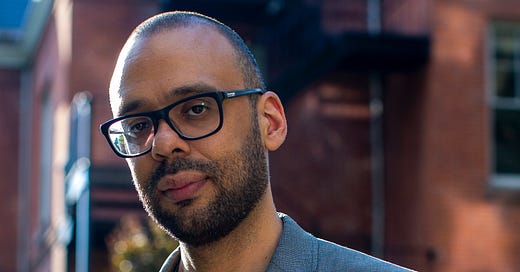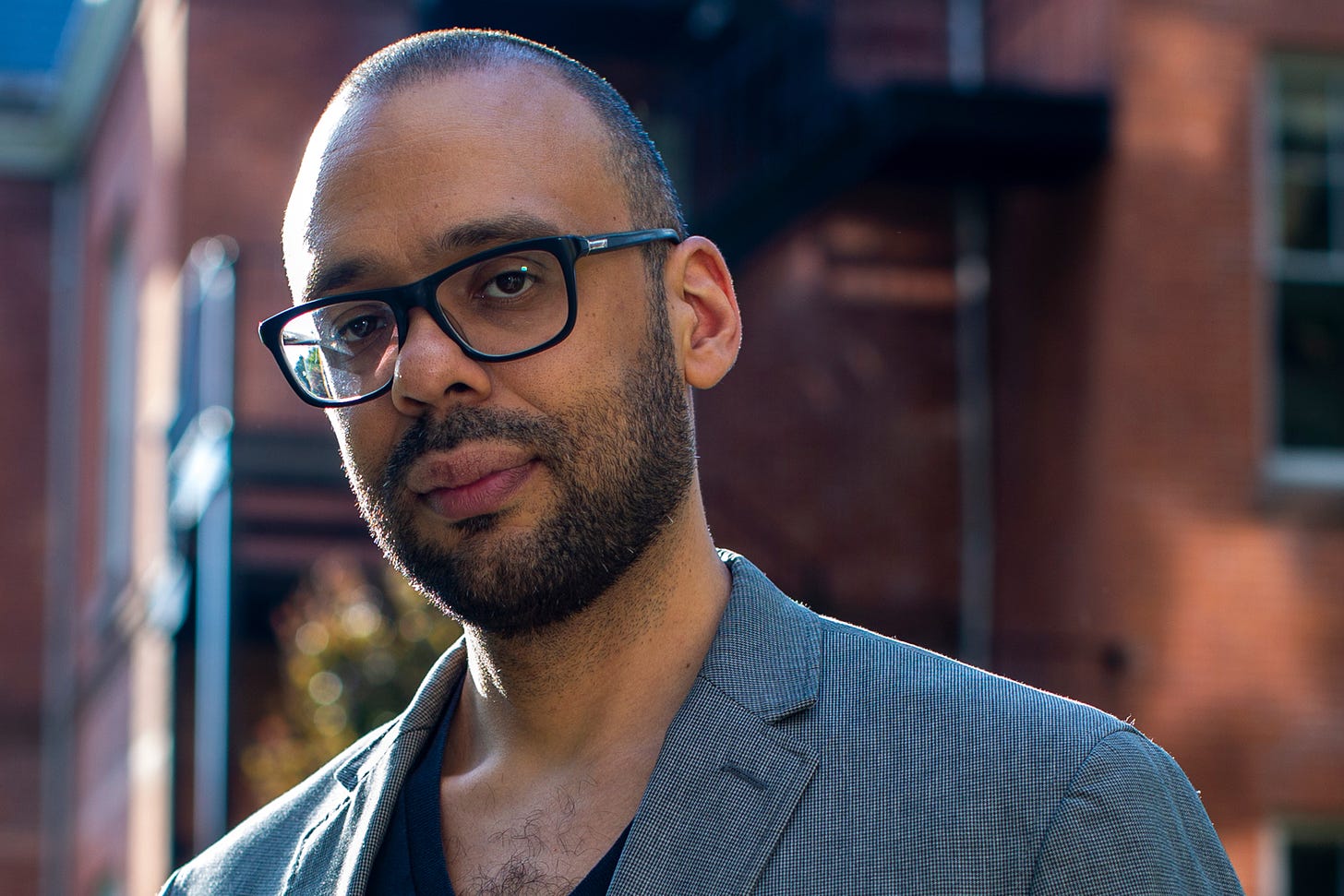We Have Never Been Woke
A new book explores the cultural contradictions of society's new elite
Book announcement
WE HAVE NEVER BEEN WOKE
A new book explores the cultural contradictions of society's new elite
Musa al-Gharbi
I’m a symbolic capitalist. If you’re reading this, there’s a strong chance you’re a symbolic capitalist, too.
“Symbolic capitalist” is my term, a neologism that refers to a new, elite social formation that first emerged in the interwar period (between World Wars I and II) and then rapidly grew in the 1970s. During this period, there were shifts to the global economy that radically increased the influence of the “symbolic industries”—science and technology, education, media, law, consulting, administration, finance, non-profits, NGOs and advocacy organizations, and so forth. People who work in these fields derive their elite social position from trafficking in data, ideas, rhetoric, and images instead of physical goods or services.
One defining trait of symbolic capitalists is our commitment to social justice. We are the Americans most likely to self-identify as feminists, antiracists, or allies to LGBTQ people. Politically, we’re overwhelmingly aligned with America’s primary “left” party. Many of our professions are explicitly oriented around altruism, speaking truth to power, or serving as impartial adjudicators, knowledge producers, facilitators and advisors in order to advance the common good.
Given the ways symbolic capitalists like to understand and describe ourselves and our professions, one might expect that as people like “us” have gained more power over society, longstanding social problems would be on the path to resolution and socioeconomic and cultural inequalities would be greatly diminished. In reality, the opposite has happened.
Even as symbolic industries committed to ameliorating our social problems have come to dominate the landscape, we’ve seen increased polarization and social conflict. Public trust in institutions has been consistently plummeting. Many systems and institutions are growing increasingly dysfunctional and ineffective. Inequalities in the U.S. have grown increasingly pronounced as symbolic capitalists have risen in affluence and influence. Symbolic capitalists are, themselves, among the primary beneficiaries of these inequalities—and social justice discourse is increasingly mobilized to justify them.
The “losers” in the symbolic economy are portrayed as deserving their lot because they think, feel or say the “wrong” things about race, gender, and sexuality. Elites’ bids for more power and status, meanwhile, are increasingly bound up with their egalitarian bona fides.
Understanding this state of affairs requires a deep and unflinching look into the history and political economy of symbolic capitalists. Although our professions have, from the outset, defined themselves as altruistic in nature—oriented towards higher principles or the greater good—the truth is, we have never been woke. My forthcoming book attempts to account for this contradiction.
Chapter Overview
Introduction
Books are products of particular times and places. They are often designed as interventions into ongoing conversations, often oriented towards some set of goals. They’re typically motivated by observations or experiences that convince authors they should or must be written. The introduction to We Have Never Been Woke details how the book came about and spells out some of its foundational axioms and goals. (You can read the full introduction on the Princeton University website here.)
Chapter 1: On Wokeness
What is “wokeness”? Who is “woke”? What are the struggles around “wokeness” actually about? Chapter 1 argues “wokeness” is best understood as the dominant ideology of a new constellation of elites: symbolic capitalists. Although sincerely committed to egalitarianism in principle, symbolic capitalists also tend to be ambitious social climbers and expect and desire to be treated as social elites. These goals are in tension. This tension has defined the symbolic professions from the outset.
Chapter 2: The Great Awokening(s)
Since 2010, there has been a rapid shift in the rhetoric, beliefs, institutional norms, and political behaviors of symbolic capitalists. These shifts are actually a “case” of something. In fact, looking at some of the same indicators we can use to substantiate and track the contemporary “Awokening,” we can see that there were three similar periods of rapid cultural and moral change over the course of the 20th century. By comparing and contrasting the current “Great Awokening” with previous episodes we can gain important insights into questions like, “Under what circumstances do these Awokenings come about? When and why do they end? What, if anything, do they tend to change? How if at all does one Awokening inform the next?” This is the project of Chapter 2.
Chapter 3: Symbolic Domination
Symbolic capitalists are elites. However, we often decline to see ourselves this way. We typically focus on millionaires and billionaires when discussing social problems. However, symbolic capitalists exert immense influence over society too. And we profit greatly from, and actively exploit and perpetuate, many social problems we conspicuously condemn. Moreover, the millionaires and billionaires in society are increasingly drawn from “us” and underwrite and subsidize our institutions and outputs. It’s largely through “us” that they make stuff happen in the world. Multinational corporations are likewise largely administrated by “us,” and their policies are designed and implemented by “us.” Political campaigns and government administrations are likewise designed and run largely by “us.” In short, the line we try to draw between “us” and “elites” is less substantial than we’d like to acknowledge. Chapter 3 illustrates this point at length.
Chapter 4: Post-Materialist Politics
Symbolic capitalists’ unique socioeconomic position and cognitive profiles predispose us towards idiosyncratic political preferences and behaviors. As symbolic capitalists have grown increasingly influential, and increasingly consolidated into the Democratic Party, we profoundly reshaped that party and the U.S. political landscape more broadly—often in ways we might not be proud of. Chapter 4 helps us understand the nature and origins of symbolic capitalists’ idiosyncratic approach to politics, including and especially our intense focus on hearts and minds, symbols and rhetoric, at the expense of the “bread and butter” struggles that other Americans are most concerned about.
Chapter 5: Totemic Capital(ism)
Symbolic capitalists have always presented ourselves as advocates for the vulnerable and downtrodden. Today, we often present ourselves as literal embodiments or representatives of historically marginalized and disadvantaged groups—and as, ourselves, being marginalized and disadvantaged (despite the reality that we are, in fact, elites). Chapter 5 explores how and why contemporary elites leverage association with ostensibly stigmatized identities in struggles over resources, status and power.
Chapter 6: Mystification of Social Processes
“Wokeness” often obscures unpalatable truths, making them harder if not impossible for symbolic capitalists and other stakeholders to see. Chapter 6 will do a dive into the cognitive and behavioral science literatures to illustrate how sincere commitments to social justice causes allow symbolic capitalists to exploit, perpetuate, and exacerbate inequalities while convincing themselves that “others” are the problem and sincerely believing themselves to be egalitarians and “allies” for the marginalized and disadvantaged in society.
Conclusion
There is more to say on social justice discourse, inequality and the rise of symbolic capitalists than can be conveyed in a single book. Moreover, even as certain questions were answered in the text, new questions were raised. The conclusion sketches out what was learned and what remains to be explored.
There have been many books published to try to understand the period of rapid change in norms and discourse after 2010. This book is not like those books. It’s not an “antiwoke” polemic—it’s a deep dive into how inequalities come about and persist, how they are legitimized, and who benefits from them and how. It draws on and synthesizes tons of empirical research from a wide range of fields. (I’m a professor of communication and journalism who previously served as an instructor in political science; I have degrees in philosophy and sociology; I was mentored by, and have co-authored scholarly work with, prominent psychologists. All of these influences shine through clearly in the book). It has a hundred year historical arc. I can guarantee: you haven’t read this book before.
Pre-Order Now
As Yashar Ali explains here, the best way to support an author is not just to buy the book after it comes out—but to pre-order. It makes a huge difference in terms of the impact of the book to have strong “day-one” sales.
We Have Never Been Woke is now available for preorder via Bookshop.org, Thriftbooks, Barnes & Noble, Amazon and most other major retailers. Readers outside the U.S. can snag a copy via Blackwell's, with free international shipping. Folks interested in the audiobook can pre-order their copy (likely narrated by yours truly) through Barnes & Noble. E-book versions are also now available for pre-order on Amazon and Barnes & Noble, too.
The book will be on shelves on October 8th in the U.S., and January 6th worldwide. And it’s going to be an absolute banger.
Advance Praise
“Our interminable culture war is marked by bluster and bomb-throwing that produces more heat than light. Musa al-Gharbi rises above the fray with a book that is certain to become the definitive account of elite social justice discourse and its myriad hypocrisies. We Have Never Been Woke is mandatory reading for anyone who wants to understand the social and economic forces that sustain both performative progressivism and its critics.”
Tyler Austin Harper, Environmental Studies, Bates College
“In this important and timely book, Musa al-Gharbi describes the rise of the ‘symbolic capitalists,’ and how an ideology has evolved to cement their power and restrict entry from outsiders. We Have Never Been Woke effectively addresses a wide readership on this contentious issue.”
Tyler Cowen, Economics, George Mason University
Musa al-Gharbi is Assistant Professor of Communication and Journalism at Stony Brook University. His work analyzes how scholars and journalists conceptualize and discuss race, inequality, social movements, extremism, policing, national security, foreign policy and domestic U.S. political contests. His work has been cited by a number of governmental and other organizations, including the Department of State, the Army War College, and the Council on Foreign Relations. He has consulted with nonprofits, corporate executives and policymakers in the U.S. and abroad. He is regularly tapped by journalists and media organizations such as NPR, CNN, USA Today, the Wall Street Journal, and Voice of America to discuss current events.
He has served as a columnist for Compact Magazine, The Guardian, Salon and Al-Jazeera America and has written for the New York Times, Washington Post, The Atlantic, The Nation, New Republic and many other outlets.
Musa has also played a pivotal role in supporting Heterodox Academy, a non-partisan non-profit dedicated to helping institutions of higher learning better reflect and engage with perspectives that are underrepresented in the academy.
Read Musa’s full bio on his website, where much of his writing is archived. Subscribe to his Substack, Symbolic Capital(ism). Follow him on Twitter/X.









This looks really interesting.
I'm really keen to hear the arguments put forward. I already intuitively believe the premise of the book, but to have it articulated would be great.
I often think about International Development in this way. From the outside, it looks altruistic and benevolent but, below the surface, it's about helping countries participate in a game they can only lose.
Like chapters 4-6, in my substack I try to document the effects of and trace how my discipline’s scholars and scholarship have impacted students. Framing them as symbolic capitalists who are elites that leverage the marginalized initially maps with my experience for the last decade. They wield enormous power and privilege to enact their epistemic sovereignty over those they teach (students) and mistakenly expect most to assimilate to this disjointed moral vision…no matter the cost.
Having followed your work with HxA (and being a member myself for 6yrs who now supports a HxA group at Virginia Tech), I found this summary of your book a compelling argument front the perspective of the symbolic capitalist. Can’t wait to read your viewpoint in full.